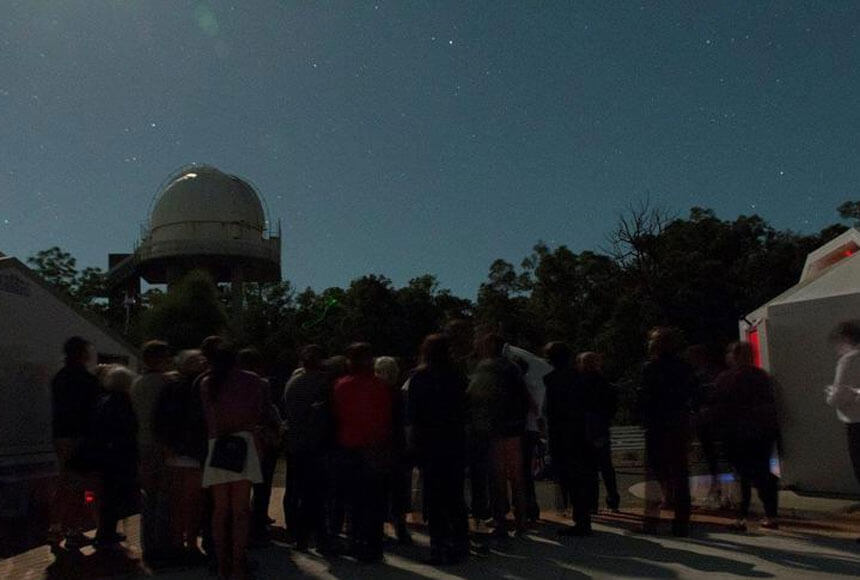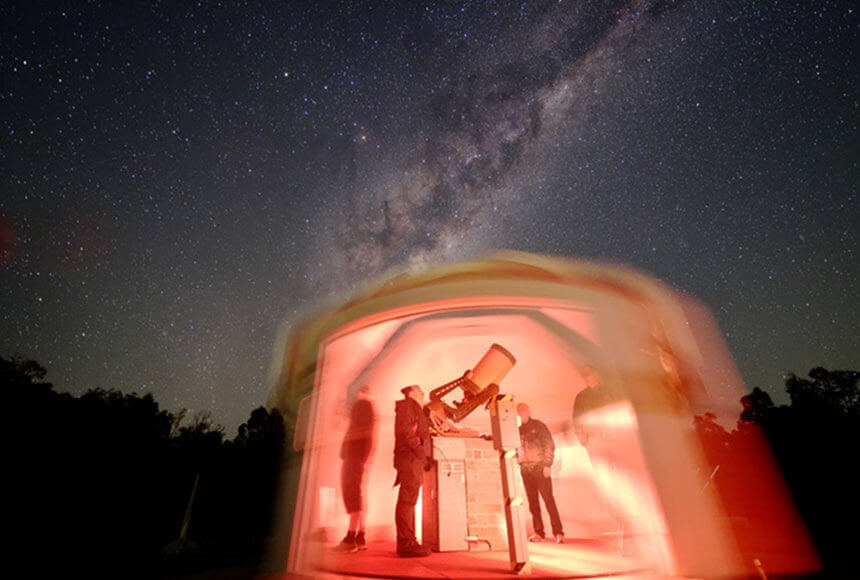Close Encounters Series - Get To Know Our Day Tours Coordinator
In 1957 the Sputnik, the Soviet Union’s first artificial earth satellite was launched and Chris Coulstock had her first introduction to space and space exploration. The space race that followed kept her interested, particularly the moon landing in 1969.
The Young Chris
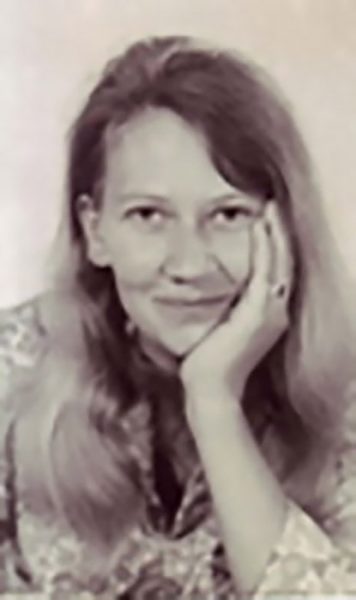
It was real-life science fiction just like the novels that Chris enjoyed. But it wasn’t until her sons came along and questioned everything, particularly the universe and “Why does the moon stay in the sky?”, that she started to investigate further. Little did she realise that it was just the beginning of a deep set fascination of astronomy that would lead her to share her love of space with school children across Perth WA. Chris started her working life in the UK in data processing, doing mainly accounts but computer work as well.
Then in 1970, Chris made the move to Australia, had her two sons and found herself immersed in school life. She then worked as a gardener before becoming a Teacher’s Aide for Pre-Primary. After discovering that she was doing more “teaching” than “aiding”, Chris decided to begin her Diploma of Teaching for Primary Education specialising in Science.
She was 40 years old and embarking on a total change of life. The Diploma then became a Bachelor of Education with Honours and in 1993 she started on her Doctorate in Science Education which, being constantly interrupted by other interests, was completed in 2001. Dr Chris had arrived!
Introducing Dr Chris
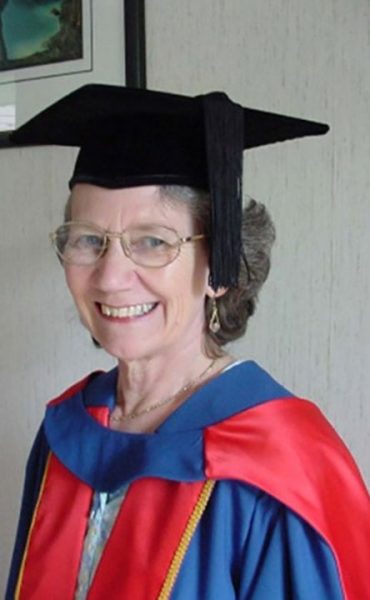
Throughout this time, Chris found that her sons shared her passion for science and they would spend many evenings lying on their trampoline looking at the stars and working out the names of the constellations. She also credits an enthusiastic talk at university from Dr Dennis Goodrum for inspiring her and maintaining her interest. As a teacher both at the university level and at primary schools, Chris liked to focus on space science and planets.
In 2006 Chris saw an advertisement in “The West Australian” Newspaper calling for volunteers to join the Perth Observatory. She knew she was getting close to retirement so applied and was accepted. Chris began as a Telescope Operator managing three nights a month plus meetings whilst working. “Back then, induction was all one Saturday, we didn’t have any training or manuals, we just had to pick everything up from the telescope operators” says Chris. The hosts then were always Observatory staff. Chris recalls how it all happened; “I went off my Probation in the second season when an operator didn’t turn up. John Tuffin was also on probation and he and I managed a telescope and presentations between us.” Chris stopped work at the end of 2007 and continuing going to the Observatory regularly. “Once I started, I found it all very interesting. I love to learn all the time, I had finished teaching, started at the Observatory and had to start learning again, so it was really good for me” says Chris.
Learning Again
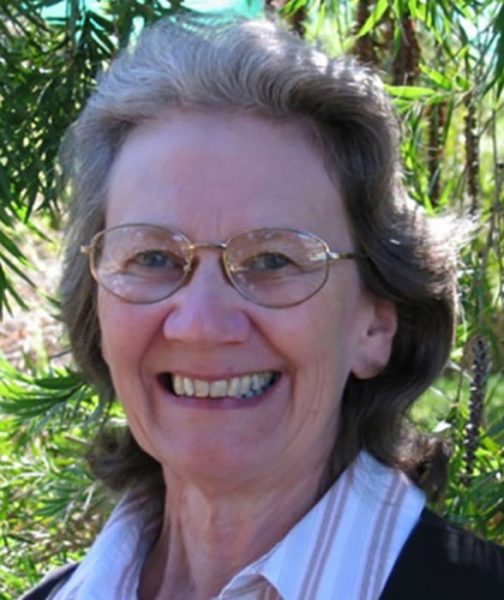
Having joined the Perth Observatory Volunteer Group she became a committee member for two years, had a break of a year and then went back for another four years, the last two as secretary. Night Tours have always been the backbone of the Perth Observatory, but many haven’t realised that School Day Tours have also been plodding along in the background. In 2012, there was a move by one of the volunteers, Karen, who was also a teacher to make the day tours link to the National Curriculum. She was joined by Arthur Harvey, Val McDuff, Ralph Martin, Greg Lowe and Chris to form a Day Tours sub-committee to look into updating the program. At first, Karen and Chris worked on the new ideas, but Karen’s outside commitments changed and she didn’t have time to stay with the program. Chris continued the long journey of searching through the education curriculum and sourcing activities and resources for the year levels. “I was really pushing for hands-on activities” says Chris.
For a long time it didn’t seem to be going anywhere but in 2014 there was a breakthrough when Observatory Staff Member, Vera Smith, was allowed to use 50% of her time to work on the new Day Tours Program. Chris had used her researches to produce a framework of activities linked closely to the curriculum which listed resources needed and questions that could be asked. This became the basis of the work Vera was doing. “Vera collected two lever arch files full of possible activities and I met regularly with her to refine the sessions that were designed” says Chris.
Unfortunately, in November 2014 the bombshell struck – the Observatory was closing – and with all the staff leaving, Chris was told that there would be no school day tours. “It was devastating” said Chris, “there was a lot of anger, because we couldn’t understand why the Observatory was closing”. Roger Groom was Chairperson at the time and he did a fantastic job of talking to members and ensuring everyone understood the options for the future of the Observatory.
“Roger, Geoff Scott and I had a meeting with Department of Parks and Wildlife, I brought up the subject of Day Tours and it was undecided as to whether they could be run by volunteers. At a general meeting in January 2015 all the volunteers voted to keep the Observatory going. Roger worked with the transition committee which wrote the contract in time for the April 2015 deadline. It was very stressful, completing an enormous amount of work in a very short time”. The wonderful news for Day Tours of course, was that it would be given a chance. It was suggested that the Day Tour team wait for the second season (2016) to test the program; however Arthur Harvey and Chris were determined to have a go in the first season. Prior to the day tours being cancelled, the day tour team had done one test day tour using the new activities. This was a great success with positive feedback from the test tour; “Our students absolutely loved the excursion and are still taking about it in class. We are looking forward to returning next year.”
Chris on Day Tours
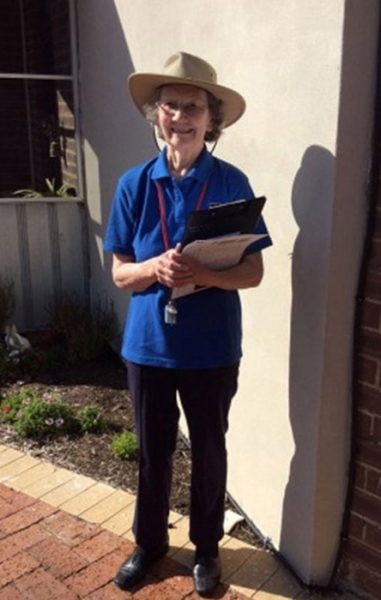
Not long after the Volunteer Group had taken over the outreach program at the observatory, it received the first Day Tour request. It was for 98 students and six activities. Chris discussed it with Arthur and they decided to go ahead, so some frantic activity writing took place so that the teachers would have a choice of activities. The day was very successful but “By the end of the day, we were absolutely exhausted. None of the group had ever done such a concentrated amount of teaching in such a short time. Night tours are easy in comparison to School Day Tours!” explained Chris, a sentiment heartily endorsed by her team members. “It was hard work, but worth it. Especially with only two toilets! We got lots of feedback and decided to try keeping future numbers to a maximum of 50 students”.
Now a year later, and after many frenzied re-writes of lesson plans for activities, Chris, with the support of the day tour team members, has brought School Day Tours into the limelight with a number of tours having been successfully run for children from Port Hedland to Mandurah, Subiaco to Kingsley. The Day tour team has received lots of positive feedback e.g. “Thank you so much for a fantastic day at the Observatory. Everyone had a great time!! Cate, Vickie and I wanted to pass on our thanks to you and the other volunteers that were there on the day.”
The day tours cater for three levels, Year 3/4, Year 5/6 and Vacation Care groups and there are now separate lists of 8 activities for teachers to choose from when booking.
Chris insists that not all the ideas have come from her. “Matt Robertson, Arthur Harvey and Hubert Rady have all come up with brilliant ideas and have been very helpful in developing new activities” says Chris. “We are always working and looking for ways to improve the sessions”.
Some future plans include getting more toilets, essential when there are primary children visiting; improving the Vacation Tours; producing a special program for Year 7 and 8’s set late in the day with hands on activities followed by a short star viewing session; and hopefully, a hands on activity for younger children that culminates in a moon viewing session through a telescope. “Children need it to be exciting” says Chris and if she has her way, they will!
So that younger Chris fascinated with the space race and science fiction, and Dr. Chris deciding that science would be a focus of her teaching is now encouraging a whole new generation of starry eyed space geeks to a new level of enthusiasm! And I have to ask, does she have any advice for our new volunteers? “Always come as often as you can, watch as many presenters as possible and you’ll learn more off them than the USB”. Chris has also shown us to never give up on our dreams and that anything is possible.


